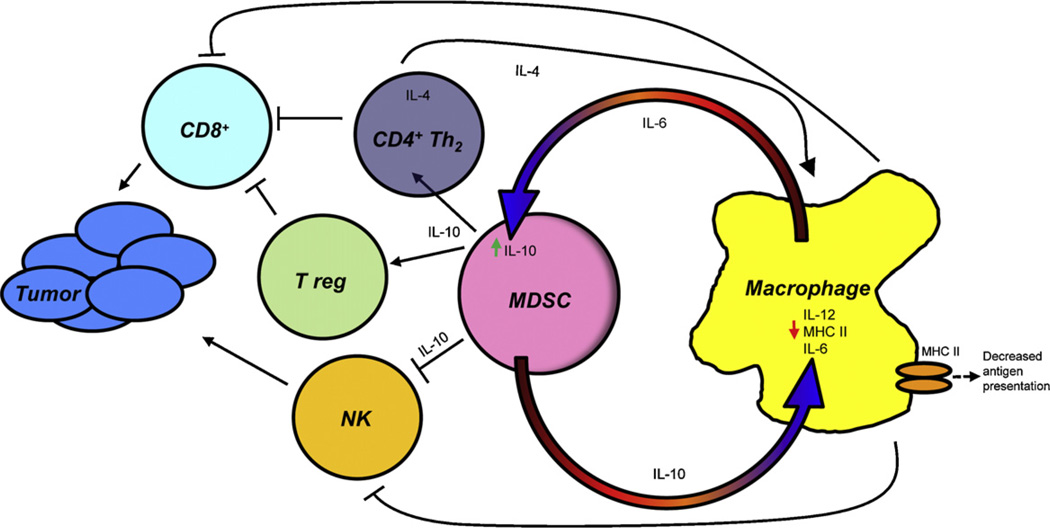Fig. 1.
Cross-talk between MDSC and macrophages polarizes immunity towards a type 2 response that promotes tumor progression. MDSC and macrophages interact with each other through a variety of soluble mediates and cell contact-dependent mechanisms that enhance the suppressive activity of each cell type. Cross-talk results in increased production of IL-10, decreased production of IL-12 and IL-6, and down-regulation of macrophage MHC II. The down-stream effects are the activation of CD4+ Th2 and T regulatory cells and decreased antigen presentation which impair cytotoxic CD8+ T cell activity and impairment of NK cell cytotoxicity. Green arrows indicate molecules that are increased; small red arrows indicate molecules that are decreased; large orange/red semi-circular arrows indicate donor to recipient cell effects.

